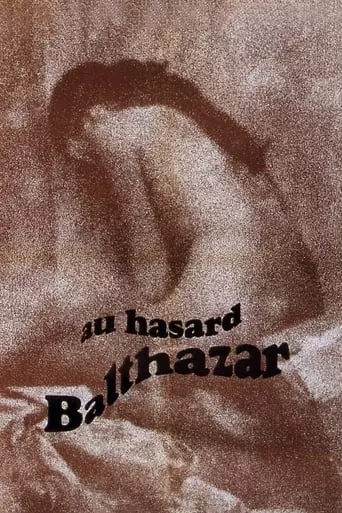
Au hasard Balthazar (1966) Watch Online Free
The story of a donkey Balthazar as he is passed from owner to owner, some kind and some cruel but all with motivations beyond his understanding. Balthazar, whose life parallels that of his first keeper, Marie, is truly a beast of burden, suffering the sins of humankind. But despite his powerlessness, he accepts his fate nobly.
Au Hasard Balthazar, directed by Robert Bresson, is a profoundly moving film that chronicles the life of a donkey named Balthazar, whose journey through various owners and experiences mirrors the lives of the people around him. The film begins with Balthazar’s carefree early life in rural France but soon delves into the darker aspects of existence as Balthazar is sold to different masters, enduring abuse, neglect, and hardship. Throughout the film, Balthazar witnesses the moral failings, cruelty, and suffering of the humans who interact with him, including his initial owner, the innocent Marie, and later, her troubled suitor, Gerard, and the town drunk Arnold.
The film’s narrative is minimalist and elliptical, capturing key moments in Balthazar’s life without providing explicit context or explanations for every event. Bresson deliberately leaves much of the story open to interpretation, relying on visual cues and the donkey’s reactions to communicate emotional and spiritual depth. The progression of Balthazar’s life as he is used, abused, and ultimately abandoned reflects the bleakness of human existence, yet his enduring innocence provides a powerful counterpoint to the selfishness and suffering around him.
The core themes of Au Hasard Balthazar revolve around innocence, suffering, and the cruelty of human beings. The film explores existential questions about the nature of life, fate, and redemption, using Balthazar as a symbolic figure of Christ-like suffering and sacrifice. His inability to understand the motivations of his human masters highlights the disconnect between the animal world and human beings, while his suffering serves as a mirror for the emotional turmoil of the people around him.
Bresson’s treatment of Balthazar’s life is heavily influenced by religious symbolism, reflecting themes of divine grace, human cruelty, and the search for redemption. The film suggests that the true meaning of suffering and existence may not be immediately apparent but lies beneath the surface, requiring a deeper level of understanding.
Bresson’s style, characterized by minimalism, sparse dialogue, and non-professional actors, enhances the film’s sense of realism and spiritual gravity. The film’s slow pace and restrained emotional delivery force viewers to engage with its philosophical underpinnings actively, making it a demanding yet deeply rewarding experience.
After watching Au Hasard Balthazar, you may feel a profound sense of emotional disquiet. The film’s exploration of cruelty, suffering, and the often incomprehensible nature of human existence can leave viewers with a sense of unease or sadness. However, there is also a sense of transcendence in Balthazar’s unwavering innocence and the quiet dignity with which he endures his fate. The film may evoke a range of feelings, from despair over the inhumanity portrayed to a more reflective, meditative mood as you ponder the spiritual and existential themes Bresson presents.
The film is likely to leave you with a heightened awareness of the fragility of life, the consequences of human actions, and the importance of compassion, making it an experience that lingers long after the credits roll
